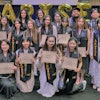People of all backgrounds become so angry about affirmative action that it is difficult to discuss the subject. The current emphasis is on Asian American applicants to Harvard College and younger Asian American students competing for entry to the magnet high schools of New York City.
In an effort to promote reasoned deliberation, here are a few observations intended to be as objective as possible. If anyone wonders about my personal opinion, I have no doubt that Asian Americans have long faced unfair discrimination at elite institutions of higher education, and since writing an op-ed while still an undergraduate in the 1980s, I’ve advocated against that forcefully. However, the evidence suggests that Whites have been given preferences, directly and indirectly, and that factor more than anything else is the cause of the problem.
Perhaps the most important point is that Asian Americans are, by definition, Americans. Although some universities appear to embellish their reputations by including Asian foreign nationals inappropriately in numbers they are required to report, the issue is whether Asian Americans are facing bias. Asian foreign nationals and Asian Americans are as different as Europeans and White Americans. The individuals are related, including literally: Asian immigrant parents can have native-born-citizen children, though some ethnic nationalists have always objected to that despite its Constitutional basis. Asians, like others, also can naturalize.
Yet among the Asian Americans who are third-generation, or whose roots in this nation date back even further as Californians or New Yorkers, there are those who live in poverty alongside African-Americans and Latinos. The assumption that they are well-to-do can result in their omission from even programs that are meant to be universal.
A more subtle aspect of the situation is easy to overlook. Asian Americans will be disproportionately affected by any admissions policy and not just affirmative action. Even if a program is “race neutral” in both its goals and its mechanisms, Asian Americans in the aggregate will feel greater consequences. Imagine if Harvard College had a benefactor who donated a new residence hall on the condition an extra hundred undergraduates be welcomed into the entering class. Or suppose the opposite, that a devastating fire destroyed most of the dormitories such that a hundred fewer seats would be offered the following year.
In either instance, Asian Americans would seem to be singled out for disparate treatment even though there is nothing specific to Asian Americans in any decision that has been made. The reason is that Asian Americans attend four-year colleges at a higher rate than other ethnic groups, including Whites. Furthermore, Asian Americans on average display stronger preferences for prestige brands. The consequence is that, mathematically rather than racially, Asian Americans will be helped or harmed by any trends in enrollment to a more significant extent than Whites or Blacks would be.
Asian American “overrepresentation” complicates everything, rendering Asian Americans less likely to attract sympathy. It is true that, relative to the fraction they make up within the overall population, Asian Americans enjoy more than their share on elite campuses. Any analysis of proportions, however, must take into account “relative to what?” The denominator in the calculation ought to be the subset who are eligible and not the raw total. Otherwise, the comparison is inappropriate.














